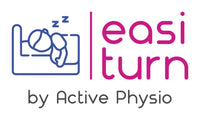Physiotherapy management of C-Section scars: Promoting Healing and Recovery

Giving birth through a cesarean section (C-section) is a major abdominal surgery that requires careful postoperative management. While the procedure has become increasingly common, it is essential to address the recovery process effectively, including the management of C-section scars. Physiotherapy plays a crucial role in promoting healing and restoring function in women who have undergone a C-section.
C-section scars are the result of an incision made in the lower abdomen to deliver the baby. These scars can vary in size and appearance, and while they generally heal well, some women may experience issues such as pain, tightness, or reduced mobility in the scar area. This is where physiotherapy intervention becomes valuable.
One of the primary goals of physiotherapy in C-section scar management is to promote optimal healing. Physiotherapists use various techniques to improve blood circulation, reduce inflammation, and minimize scar tissue formation. Manual therapy techniques, such as scar massage, can help break down adhesions and promote better tissue mobility. This hands-on approach can also desensitize the scar, reducing pain and hypersensitivity.
Another crucial aspect of physiotherapy management is exercise prescription. Gentle exercises targeting the abdominal muscles and surrounding areas are gradually introduced to aid in the recovery process. Strengthening the core muscles not only enhances the support for the healing scar but also improves overall functional stability. These exercises are tailored to individual needs and may include pelvic floor exercises, gentle stretching, and progressive resistance training.
In addition to physical interventions, physiotherapists also provide valuable education and advice. They guide women on proper posture and body mechanics to prevent strain on the scar during daily activities. They also teach techniques for self-management, such as scar mobilization and appropriate use of heat or cold therapy. By empowering women with knowledge and self-care strategies, physiotherapists enable them to take an active role in their recovery.
Beyond the physical aspects, physiotherapy addresses the emotional well-being of women who have undergone C-sections. The experience of giving birth through surgery can be emotionally challenging, and physiotherapists offer support and counseling. By providing a safe space for women to express their concerns and fears, physiotherapists can contribute to their overall healing and recovery process.
It is important to note that every woman's recovery journey is unique. The timing and progression of physiotherapy interventions may vary based on individual factors such as the healing process, pain levels, and functional goals. Therefore, a personalized approach is crucial to address the specific needs of each woman.
In conclusion, physiotherapy plays a vital role in the management of C-section scars. Through a combination of physical interventions, exercise prescription, education, and emotional support, physiotherapists promote optimal healing, restore function, and enhance the overall well-being of women who have undergone C-sections. By incorporating physiotherapy into postoperative care, women can experience a smoother recovery and regain their strength and confidence after childbirth.
